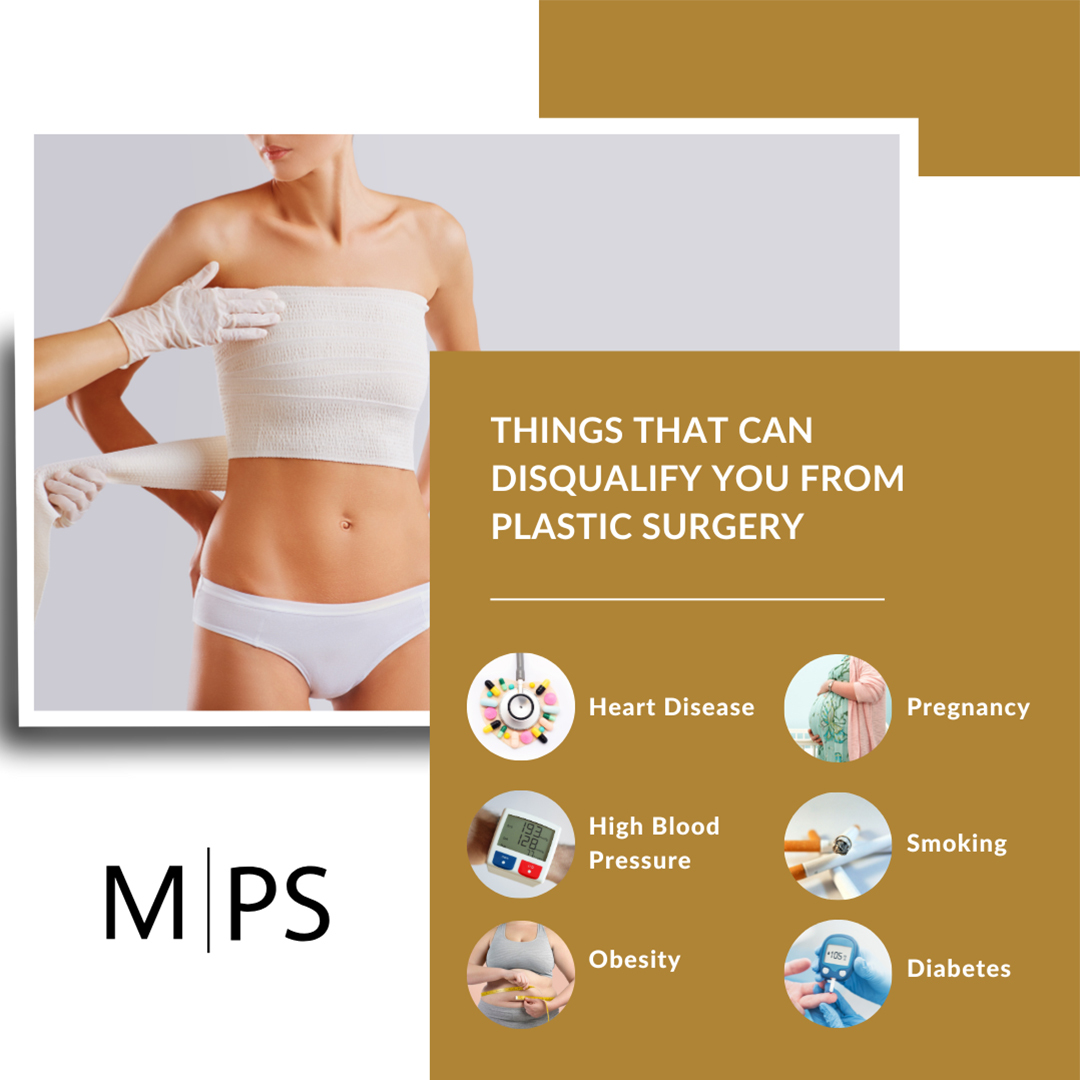Typically, people in good health are candidates for plastic surgery. While plastic surgery can enhance one’s appearance and boost self-confidence, it also carries risks.
Your eligibility for plastic surgery depends on several factors, including the procedure you wish to undertake. However, not everybody is a good candidate for plastic surgery procedures. This article looks at what disqualifies you from getting plastic surgery.
9 Things That Can Disqualify You From Plastic Surgery

Heart Disease
Conditions affecting the heart and blood vessels, such as coronary artery disease, and heart failure, increase the risk of complications during and after surgery. Cardiovascular disease can affect blood flow to the skin and tissues. This can lead to poor wound healing after surgery.
High Blood Pressure
High blood pressure can cause blood vessels to weaken and rupture more quickly. This can lead to increased bleeding during and after surgery. Hypertension can also affect blood flow to the skin and tissues, resulting in poor wound healing after surgery.
Individuals with high blood pressure may be more susceptible to infections, which can be a severe complication. In addition, high blood pressure can make you more susceptible to anesthesia-related complications (irregular heart rhythms, heart attack, or stroke).
Other Medical Conditions
Several medical conditions can disqualify you from having plastic surgery. These conditions may increase the risk of complications during and after the procedure. Diabetes, for example, can cause poor circulation, leading to slow wound healing and increased infection risk.
Likewise, thyroid problems can impact your ability to heal post-surgery. It can prolong recovery time and increase the risk of complications.
Obesity
A high BMI can increase the risk of anesthesia-related complications. These include respiratory distress, heart attack, or stroke. It can also reduce blood flow to your skin and tissues, leading to poor wound healing after surgery. This can increase the risk of infection, a severe complication to deal with post-surgery.
Additionally, obesity can make it harder for your plastic surgeon to achieve the desired aesthetic results. Excess body fat can interfere with the contours and symmetry of the treated area. Thus, it can make it more challenging to achieve a natural-looking result.
Pregnancy
Pregnancy can cause significant changes to the body, including weight gain, fluid retention, and hormonal fluctuations. These changes can affect the outcome of plastic surgery procedures and make it less likely to achieve your desired results.
Pregnancy can increase the risk of complications during and after surgery, including bleeding, infection, and blood clots. Surgical procedures require anesthesia and medication that can potentially harm the developing baby. bestThis is especially the case during the first trimester of pregnancy when your baby is most vulnerable.
In general, it’s best to wait until after pregnancy and breastfeeding are complete before undergoing plastic surgery.
Smoking
Smoking can affect the skin’s elasticity and cause premature aging. This can make it more challenging to achieve the desired aesthetic outcome of the procedure. Smoking can also increase scarring, negatively affecting the surgical area’s overall appearance.
Smoking constricts blood vessels and reduces blood flow to the skin and tissues. Poor blood flow delays wound healing and increases the risk of infection. Because smoking puts stress on the lungs and cardiovascular system, it increases the risk of respiratory distress under anesthetic.
Drug use
Drug use, particularly illegal drugs, can affect the body’s response to anesthetics and other medications used during surgery. This increases the risk of complications during and after surgery.
Certain drugs, especially drugs that affect the circulatory system, can interfere with the body’s natural healing process. This can lead to an increased risk of bleeding, poor wound healing, and a higher risk of infection. Drugs and unprescribed medication can also interfere with prescription medication, causing negative interactions and complications during the procedure.
Unrealistic Expectations
Some people may not fully understand the limitations of plastic surgery procedures. Media influence is not helpful either. Images of celebrities or social media influencers who have undergone extensive procedures can create an unrealistic idea of what is achievable through plastic surgery.
The look you wish to achieve may not be possible for you. If you consider plastic surgery to look like someone else or become a clone of your favorite celebrity, an ethical surgeon will decline your requests.
Inappropriate Motivation
Inappropriate plastic surgery motivation includes factors unrelated to personal improvement or enhancement. For example, If someone is seeking plastic surgery primarily to please someone else, such as a partner, friend, or family member.
Trying to alleviate psychological issues, such as body dysmorphia or severe anxiety, by changing your physical appearance is not an appropriate motivation for plastic surgery. In these cases, it may be more beneficial to seek mental health treatment first.
If you want to know if you’re a good candidate for aesthetic surgery, call Millennial Plastic Surgery today. Dr. Shokrian will answer all your questions and advise you on the safest and most effective ways to reach your aesthetic goals.
